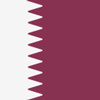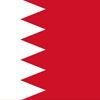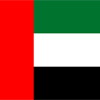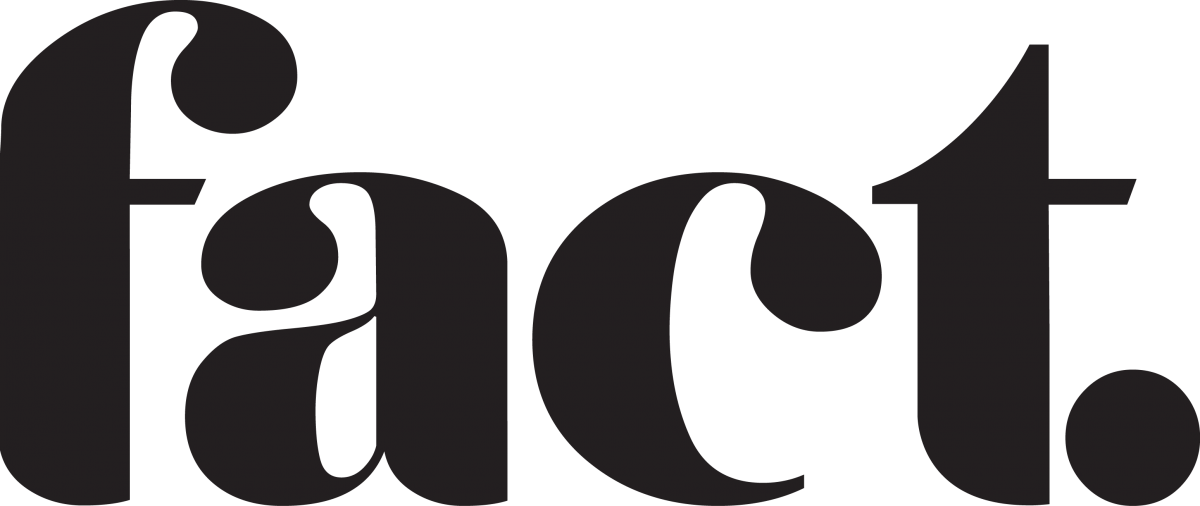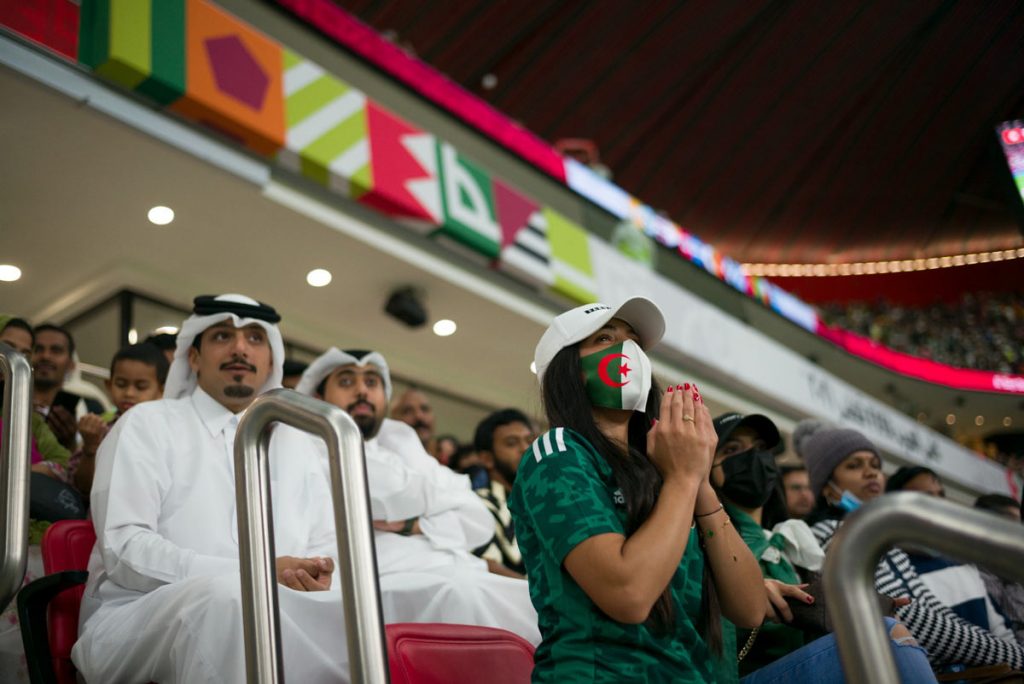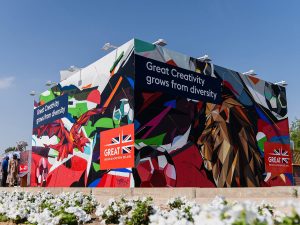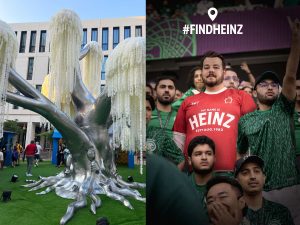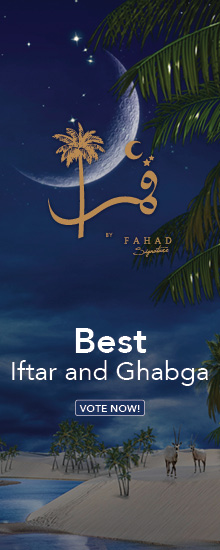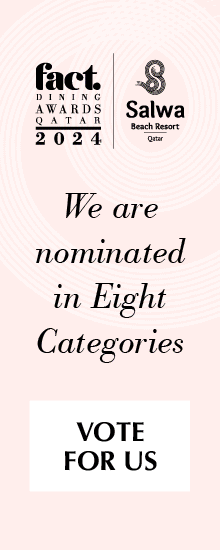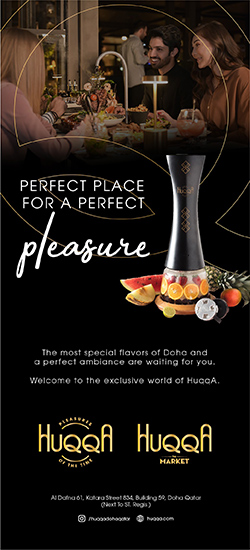The FIFA Arab Cup Qatar 2021™ in numbers

Key facts and figures from the first edition of the tournament!
The FIFA Arab Cup Qatar 2021™ was a great success, and enabled FIFA, the FIFA World Cup Qatar 2022 LLC (Q22) and the Host Country to test numerous aspects of tournament operations ahead of the FIFA World Cup Qatar 2022™, which will kick off on 21 November.
The FIFA Arab Cup was an excellent opportunity to learn and refine plans, as well as to showcase FIFA and Qatar’s preparations and readiness. It united millions of people from the Arab region and beyond, in stadiums and watching from home, with the region’s passion for the sport clear to see.
FIFA, the Supreme Committee for Delivery & Legacy (SC) and the FIFA World Cup Qatar 2022 LLC (Q22) have gathered an overview of the event’s facts and figures – from over 630,000 ticket allocations to more than a thousand pieces of luggage carried by the 16 participating teams.
The numbers speak for themselves, showcasing – in spite of the challenges of the COVID-19 pandemic – how fans from Qatar, the Middle East and around the world were able to cheer for their teams and enjoy an amazing tournament.
THE EVENT
The FIFA Arab Cup 2021 was the 1st edition of the tournament
National teams: 16
Matches: 32
Stadiums: 6
ON THE PITCH
Number of goals: 83
Average goals per match: 2.6
Yellow cards: 101
Red cards: 13
Top goalscorer: Seifeddine Jaziri (Tunisia – 4 goals)
REFEREES
12 referees and 24 assistant referees from 6 confederations, plus 16 VARs
Training sessions: 23
Transfers: 329
TICKETING
Total tickets allocated: 631,742
Percentage of tickets presented on mobile phones by general public: 92%
Matches with an occupancy above 80% (based on tickets put on sale given COVID-19 capacity restrictions):
Match 1: Qatar vs Bahrain
Match 12: Syria vs Tunisia
Match 13: Jordan vs Morocco
Match 14: Lebanon vs Algeria
Match 15: Sudan vs Egypt
Match 17: Syria vs Mauritania
Match 18: Tunisia vs United Arab Emirates
Match 20: Qatar vs Iraq
Match 21: Morocco vs Saudi Arabia
Match 22: Jordan vs Palestine
Match 23: Algeria vs Egypt
Match 25: Oman vs Tunisia
Match 26: Qatar vs United Arab Emirates
Match 27: Egypt vs Jordan
Match 28: Morocco vs Algeria
Match 29: Tunisia vs Egypt
Match 30: Qatar vs Algeria
Match 31: Egypt vs Qatar
Match 32: Tunisia vs Algeria
Tickets purchased by Qatari residents: 89%
Tickets purchased by international visitors: 11%
Top 5 ticket buyers by nationality: India, Qatar, Egypt, Tunisia, Jordan
Top 5 ticket buyers by residence: Qatar, Egypt, Saudi Arabia, India, Iraq
Biggest crowd: 63,439 for the quarter-final match between Qatar and United Arab Emirates – a national attendance record for a sporting event
HOSPITALITY
Packages sold: 16,765
Hospitality lounges: 4 (3,200m²)
Skyboxes: 294
Staff: 2,500
HAY’YA CARD (FAN ID)
Total approved Hay’ya cards: 174,087
Hay’ya cards collected: 75%
Hay’ya cards delivered/couriered: 25%
TEAMS
Accredited team delegates: 842, of which 387 were players
Team luggage: 1,166 pieces
Official training sessions: 64
Other training sessions: 118
Transfers: 1,222
Press conferences: 64
ACCREDITATION
Main Accreditation Centre: 1
Stadium Accreditation Centres: 6
Accreditation passes printed: 50,414
TRANSPORTATION
2.5m fans used public transport throughout the tournament
600 buses dedicated to FIFA Arab Cup operations
680,000 passengers used metro services to access the Corniche during the period it was closed to vehicles
VOLUNTEERS PROGRAMME
55,989 registrations submitted
5,000 volunteers
350 international volunteers from 92 different nationalities
95% Qatari residents
SUSTAINABILITY & DIVERSITY
All stadiums were accessible and inclusive
2 stadiums piloted the audio descriptive commentary service in Arabic for the first time
1 sensory viewing room at Education City Stadium
Anti-discrimination training
- All FIFA referees, FIFA match commissioners, FIFA match directors and FIFA safety and security officers were trained in anti-discrimination measures
- All stewards, other venue-related staff and volunteers received basic training in anti-discrimination
Procedures for discriminatory incidents
- Proactive anti-discrimination stadium announcement displayed before all matches
- Reactive stadium announcement and three-step procedure was in place for all matches
Anti-discrimination monitoring system
- Anti-discrimination risk assessment provided for all 32 matches
- Anti-discrimination match observers deployed at all discrimination-related high-risk matches
- Special flags and banners screening provided for all 32 matches
FOOD & BEVERAGE (STADIUM CONCESSIONS)
Staff members: 1,500
FIFA DIGITAL
Social channels :
- Impressions: 326m
- Engagements: 6.5m
- Video views: 57m
Owned channels
- Unique visitors: 2.4m
- Visits: 5.8m
- Page views: 43m
- 11m subscribers mark reached on FIFA’s YouTube channel during the event
- Number of Twitter mentions during the whole tournament: 352,000 (#FIFArabCup was mentioned 40,000 times)
- Peak was reached during the final on 18 December: 80,000 mentions
MEDIA & BROADCASTING
Over 1,000 journalists accredited
Among Media Rights Licensees, 15% were international
Among other media, 65% were international
Rights distribution
- 15 Media Rights Licensees covering 83 territories around the globe broadcast the event on linear television
- The event was streamed worldwide on a free basis on FIFA’s YouTube and/or broadcast partners’ digital channels
- beIN SPORTS transmitted all 32 matches on satellite free-to-air television and on digital across the MENA region
- Additional free-to-air television coverage in MENA was provided through Al Kass & Al Rayyan (Qatar), On Time Sport (Egypt), Al Rabiaa TV (Iraq) and Oman Sports TV (Oman)
- 650 individual accreditations for the event were allocated to broadcast partners
Initial TV audience figures
Data based on beIN SPORTS free-to-air pan-regional linear channel transmission of the first 28 matches:
- 85m unique viewers estimated for beIN SPORTS coverage of the FIFA Arab Cup up to the quarter-finals stage
- Average of 3.1m viewers for each group stage match for a reach of 7.6m individual viewers
- Algeria vs Egypt was the most-watched group stage match: average audience of 9.5m viewers and unique reach of 23.8m viewers
- Average of 7.2m viewers for each quarter-final match
- Morocco vs Algeria quarter-final provided highest viewership to-date: average estimated audience of 11m and unique reach of 27.6m viewers
Publics Sports & Entertainment estimated the average audience figures based on the reach information supplied by beIN SPORTS.
Production
- 5 host broadcast production teams
- 1080i world feed
- 29 host broadcast production cameras across all matches
- Dedicated digital content production
- International Broadcaster Coordination Centre and UHD HDR production at Al Bayt Stadium (5 matches) as part of FIFA World Cup 2022 technical platform and workflows testing
